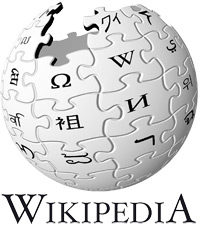(My title here comes from a facebook group I’ve been a member of for some time. It still gives me a laugh.)
 While reading through my RSS feeds this morning, a found an interesting story from Ars Technica which discusses the merits of Wikipedia as a scholarly source. It discusses the prospect of Wikipedia being banned in both China and other authoritarian establishments such as high schools and such. In the end, it makes the point that teaching kids in school to give the critical eye to possibly inaccurate information is far more valuable than doing away with the resource.
While reading through my RSS feeds this morning, a found an interesting story from Ars Technica which discusses the merits of Wikipedia as a scholarly source. It discusses the prospect of Wikipedia being banned in both China and other authoritarian establishments such as high schools and such. In the end, it makes the point that teaching kids in school to give the critical eye to possibly inaccurate information is far more valuable than doing away with the resource.
It may sound far fetched, but the Wiki Ban Hammer has already come down in some schools. It’s gone so far that one librarian described in that article has seen it fit to place “Just Say No To Wikipedia” signs all over her Middle School library. (And they say we are backwards here in Alabama.) I feel bad for the poor kids who are at the receiving end of this type of education that in no way looks forward.
The fact of the matter is that the use of the web is a viable way of doing research. And there are certain social tools used throughout the web that promote outward reaching thinking and take certain care of authenticity. Taking Wikipedia away from these kids only limits them from the avenues that are becoming increasingly recognized, useful, and accurate. It’s true that Wikipedia isn’t always entirely accurate, but neither is Encyclopedia Britannica.
I would never recommend citing Wikipedia in a scholarly paper of any kind, but I would highly recommend it in finding good sources. In most scholarly-ish articles on Wikipedia, there’s a good eye of accuracy held by those contributing to the articles. Every claim is carefully sourced, vandalism is violently frowned upon, and new information found in any area can be automatically updated. I would assume that the librarian mentioned above would recommend online encyclopedia sites, unaware of the knowledge that Wikipedia combines the same information from them all.
To be fair, most of the inaccuracies present on Wikis can be attributed to meaningless garbage that should be better placed on fan sites. If there’s a bone to pick with Wikipedia, it’s that there’s insanely lengthy descriptions of every episode of every series of Star Trek, for example. But hey. It really is a collection of truly all knowledge, and that’s something that other “scholarly” sources can’t claim.

Leave a comment